My Life as a Theatre Director, part 2
by Lauren E. Nichols
Just months later, in the spring of 2005, I found myself in the director’s seat once more. This time, the play was one I discovered and fell in love with: William Gibson’s American Primitive. The script is constructed almost entirely of letters between John and Abigail Adams during the American Revolution. Additionally, a small ensemble speaks free verse poetry about various events, and provides a backdrop of characters with whom John and Abigail interact: Congressmen, soldiers, neighbors, children.
This play is still notable in my mind as the first time I read a script as a director and had an immediate sense of exactly what the finished product would look like. Of course getting there would be challenging. I soon realized that my intangible “sense” needed to be fleshed out in many ways: set design, sound design, blocking to keep the play visually interesting. Since this historic time period is one of my favorites, it became a labor of love in every aspect. Whether it was recruiting my church choir to record acapella choral pieces from the 18th century, or finding period maps to project which helped the audience follow the action of the war, or deciding where we could use live sound effects (mainly percussion) to punctuate the action and imitate the sounds of battle, I reveled in every bit.
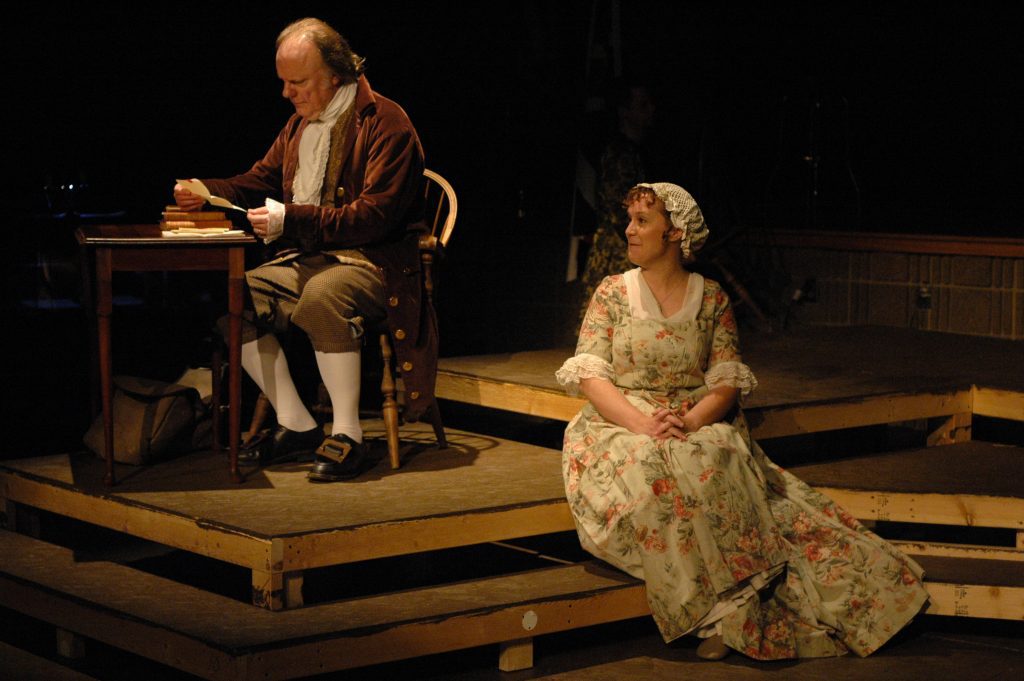
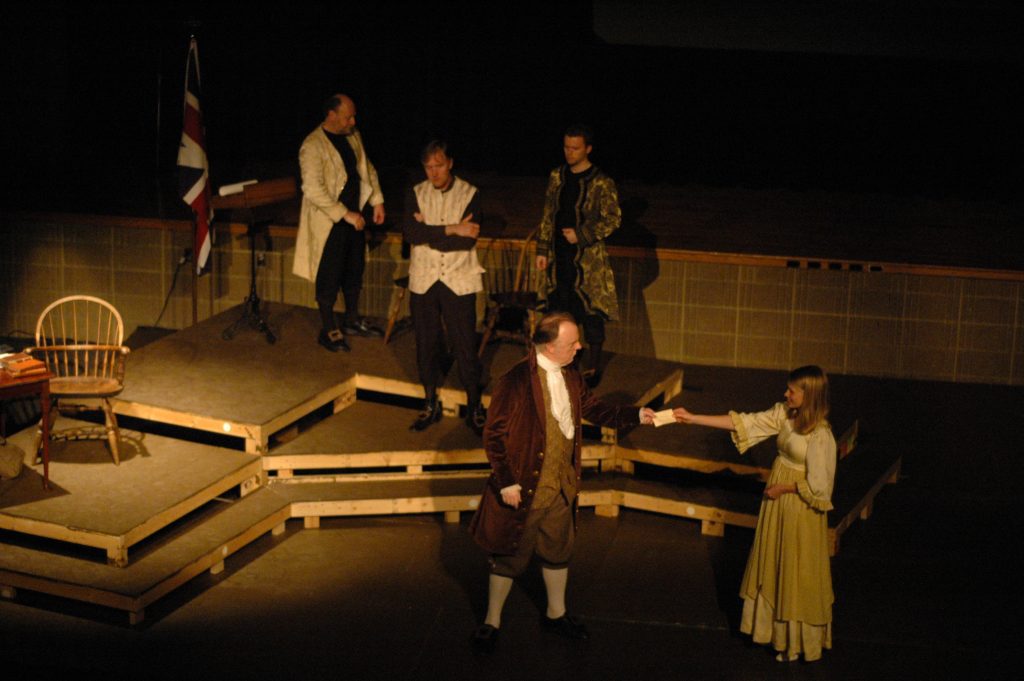
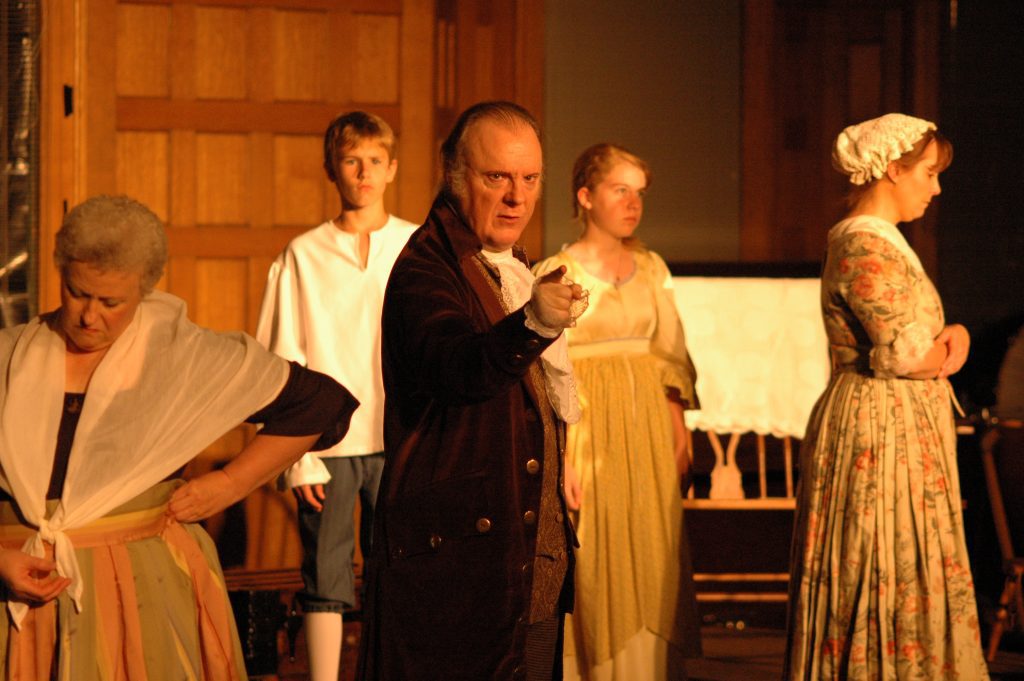
When we opened, I was delighted (and relieved) to find that, indeed, the production felt exactly the way I sensed it should on my first reading. It flowed back and forth from Braintree to Philadelphia, following the heartbreaking story of a devoted husband and wife separated by distance and events, their letters crossing in the mail–sometimes humorously, often tragically. It was not a play which attracted a huge audience, but it was one which to this day, people who saw it mention as one of their favorites.
Although it would be over a year before I directed again, I was beginning to enjoy the challenge of finding scripts which fit our mission and vision. I definitely have my favorite genres, notably British period dramas like An Inspector Calls, literary adaptations such as Crime and Punishment and Jane Austen’s works. But there is something to love in every play, and the cast makes all the difference in the world.
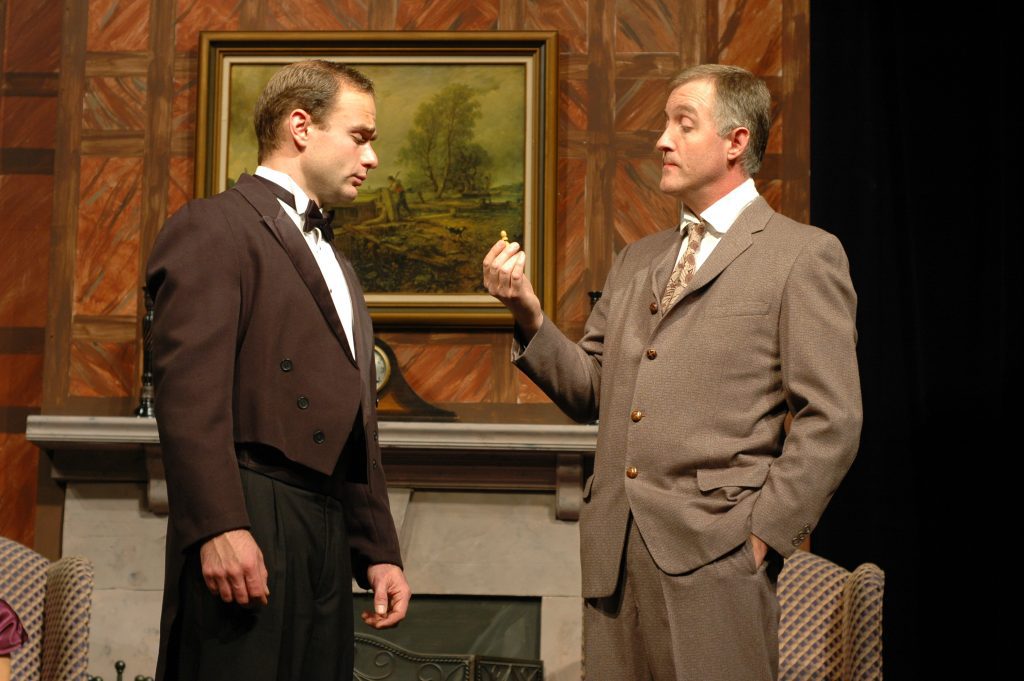
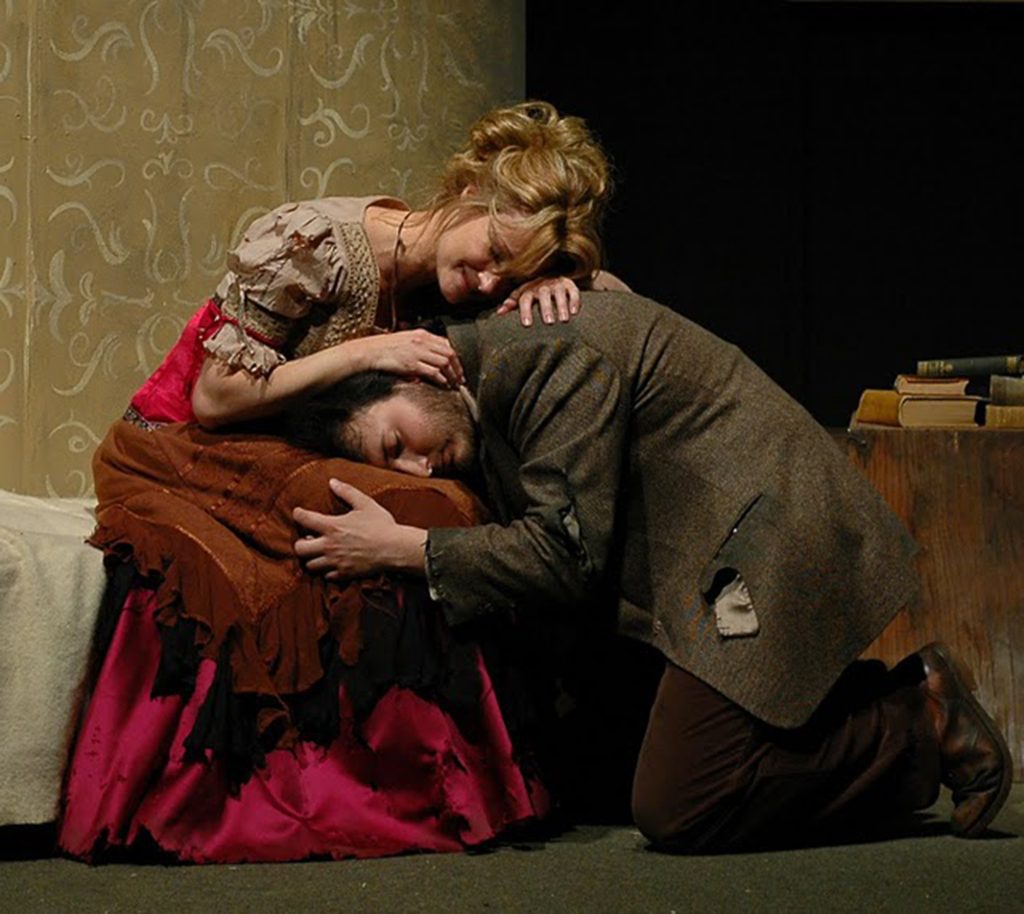
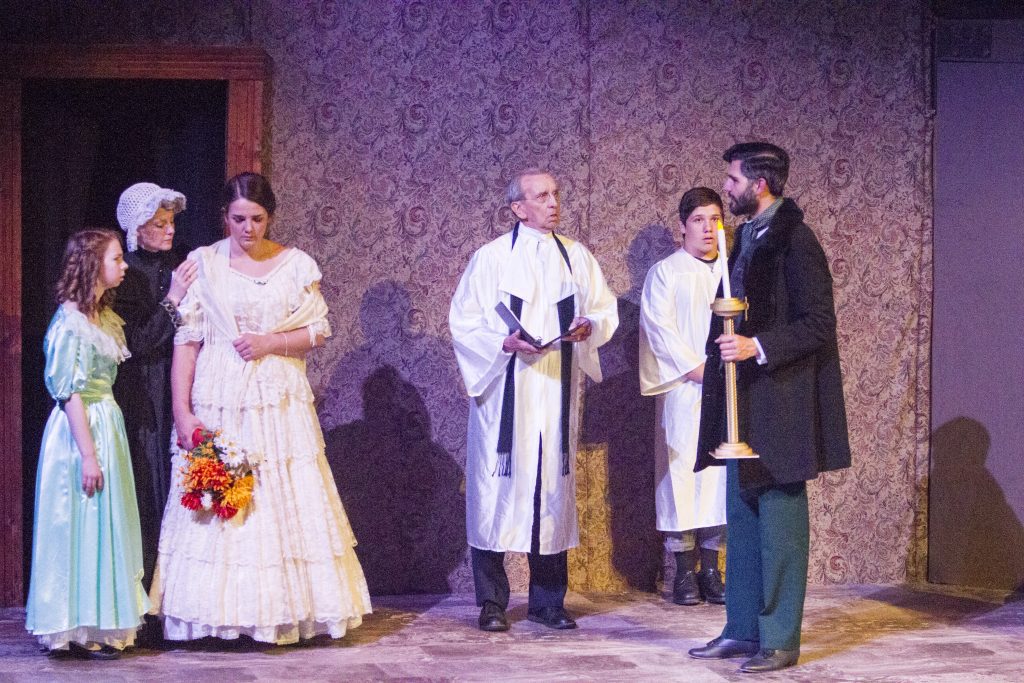
Our first production in the auditorium of the Allen County Public Library (June 2007) is a case in point. All I Really Need to Know I Learned in Kindergarten was the first play with live music that we staged. Made up of a flexible number of vignettes and monologues underscored with live piano, plus a few songs, it was a tour de force for a small group of actors. Since each story was self-contained, it was a chance for the actors’ own creativity to shine to the fullest as they created characters and pantomime. I had the enviable task of watching and approving the things they came up with. Certainly, there was guidance, shaping, discarding what didn’t work. But that play stands out in my memory as one of the most satisfying collaborations I’ve ever experienced. The stories they told, with humor or pathos, stay with me to this day.
